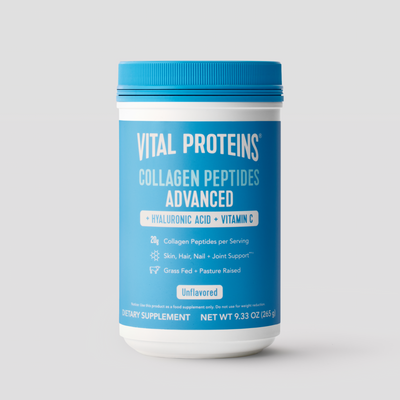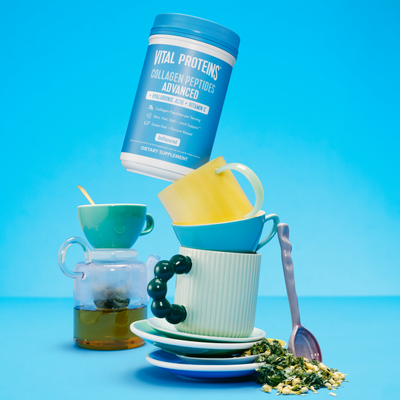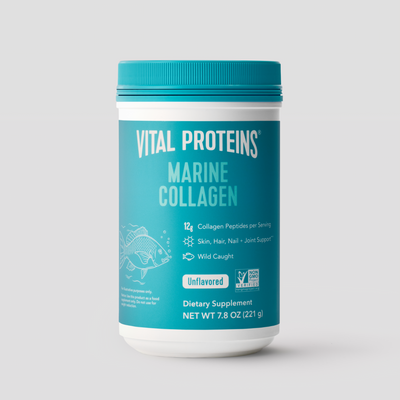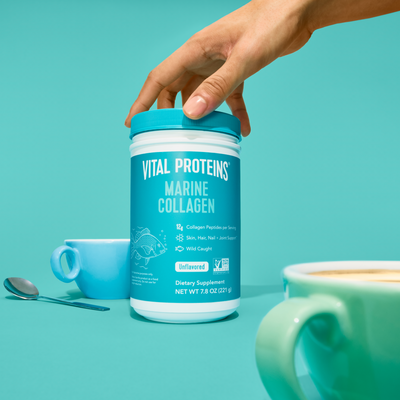As the body's most abundant protein, collagen is a hot commodity in the skincare world. "Collagen is the main protein that provides structure and support to your skin," explains NYC dermatologist, Dr. Joshua Zeichner. Without it, the skin loses its bounce, elasticity and suppleness.
But as we age, we naturally lose collagen. This begins in our mid-20s and declines as we get older, leaving us with one of two options: a.) protecting the collagen we have and b.) learning how to increase collagen.
Prepared to tackle both? From food to facials to professional treatments, here are the best, expert-approved ways of increasing collagen.
Can you rebuild collagen in your skin?
The short answer is yes. But Aomi Richter, LE, esthetician and Owner of Evolve Skin Studio in Asheville, NC, says that skin should be looked at on a cellular level. "Our skin cells are only as healthy as the components from which they are formed," she tells Lively. "The healthier the diet, the healthier the skin cell and the more radiant the skin."
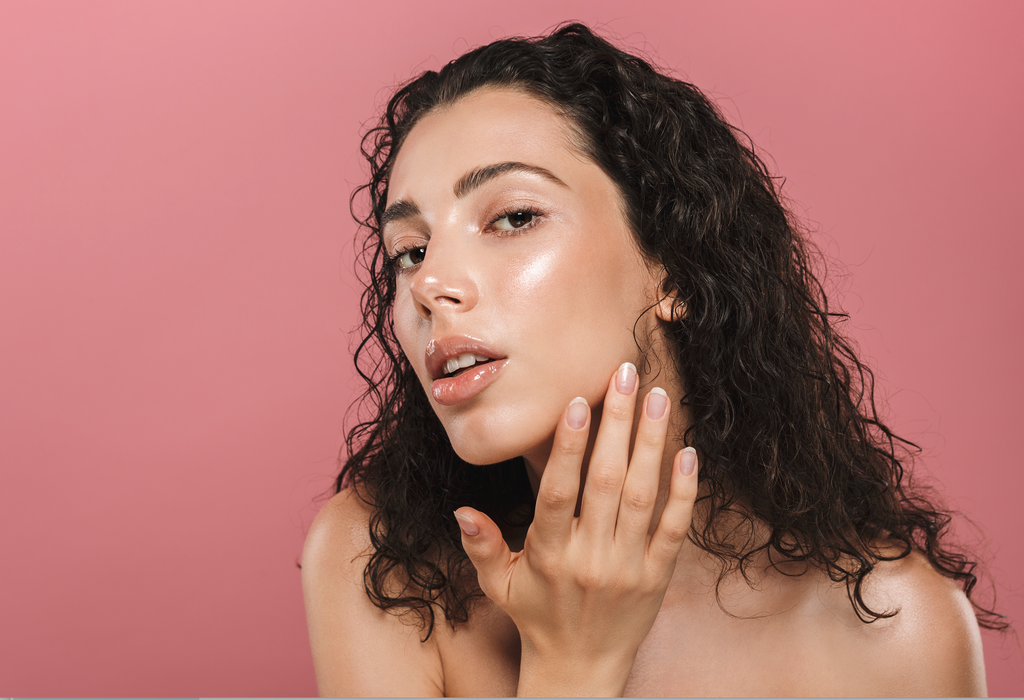
What stimulates collagen production?
Beyond sun-safe protection, topical retinoids are the most proven anti-aging topical option, according to NYC-based dermatologist, Dr. Hadley King: "Retinoids work by binding to retinoic acid receptors, which then can act as transcription factors and affect gene expression."
This is a powerful ally to have on your side, as it provides transformative benefits to the skin. “They increase the turnover of skin cells, reduce the tendency of cells and keratin debris to clump together and clog up pores, increase collagen production and decrease discoloration,” says Dr. King.
Want faster results? Give professional treatments a try: "Microneedling can also trick the skin into thinking there is a need for repair in the skin, causing new collagen production," explains Richter. You'll find the dramatic results you're looking for with additional in-office procedures, according to Jill Canes, NP, Founder of Face Forward Medical Aesthetics.
"More advanced procedures such as radiofrequency microneedling and fractional laser skin resurfacing produce more dramatic collagen production in the months following these very effective procedures."
What foods are high in collagen?
You don’t have to eat too far outside your basic food groups for a collagen-rich diet. "The most common food sources of collagen are lean meats, fish, bone broth and eggs," explains Dr. King.
This is the not-so-sweet part about foods that are high in collagen: Sugar is not on this list. "High sugar levels can lead to a process known as glycation where sugar molecules themselves bind to collagen, leading to stiffening of the strands and breakage rather than bending," says Dr. Zeichner.
Of course, you can give your skin the collagen it craves with Vital Proteins®.** Whether you're a collagen newbie or a seasoned pro, Collagen Peptides is always a great gift if supporting healthy skin is what you're after. This hydrolyzed collagen powder is unflavored and can be mixed into your coffee or smoothies for a boost to your daily collagen intake.
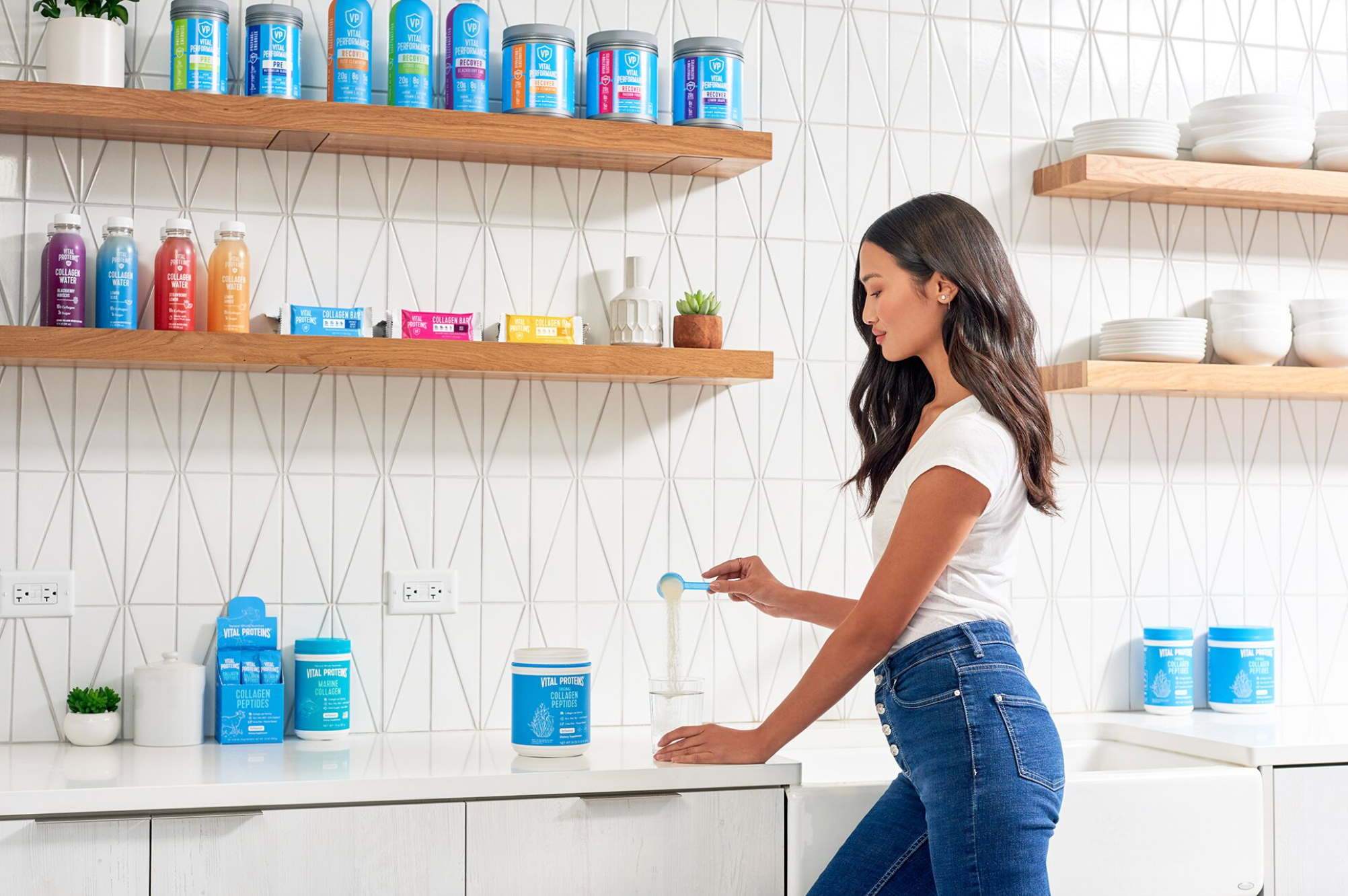
How can I increase collagen in my face?
Looking to add some bounce back into your skin? Take this advice at face value. Richter says to use skincare products containing retinol, vitamin C and collagen peptides. Dr. King agrees, adding that you'll want to also practice sun-smart behaviors, exercise regularly, eat a healthy diet with lean protein and minimal sugar.
If you're going the treatment route, Richter cautions that you get adequate vitamin C and iron as well. Without these things, "collagen fails to produce the necessary strong triple helix, resulting in weak connective tissues. This may accelerate the aging process."
What destroys collagen?
"The overall loss of collagen in the skin is due to two factors: increased breakdown of collagen and inhibition of collagen production," says Dr. King. "Both are stimulated by UV exposure." Not surprisingly, this puts sun exposure top of the list when it comes to what destroys collagen.
"Skin that has significant photodamage may undergo a 56% reduction in type I collagen as compared with skin that has been protected from the sun," Dr. King tells Lively.
Here's some more bad news for sugar lovers: Eating too much sugar and other refined carbs plays a part in collagen loss. "Excess sugar molecules bond to collagen and elastin through a process named glycation, resulting in AGEs or advanced glycation end products," says Dr. King.
"This process ultimately causes the collagen and elastin fibers to lose their strength and flexibility, contributing to aging of the skin," she adds. This eventually leads to a loss of elasticity and firmness in the skin.
Other things that destroy collagen, according to Canes, includes smoke and tobacco exposure and free radical-induced oxygenation. Ramping up collagen production means doing the opposite of these things. "Apply a daily SPF and avoid the sun when possible, don’t smoke or cut back if possible and try to make sure that antioxidants are part of your daily skincare routine," she says, adding that the best antioxidants are vitamin C and vitamin E.














